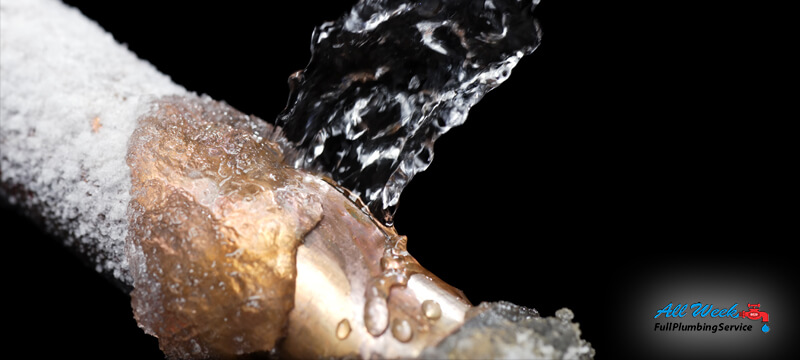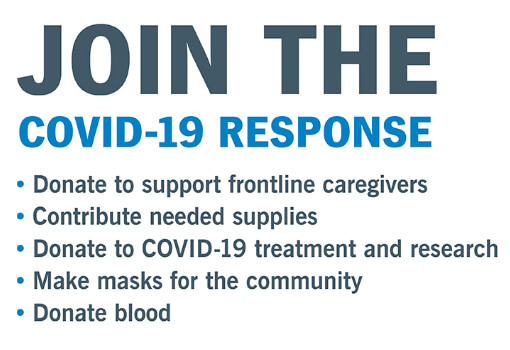- Serving Our NJ Neighbors 24/7 (888) 333-2422
Frozen & Burst Pipe Investigations

When the temperature is below 32°F for long, the water in the pipes could freeze. There are two basic reasons that lead to frozen pipes:
- If the pipe is installed in a place that doesn’t generate heat and lacks adequate protection.
- Insufficient heat in the point where the freezing occurs
Damaged and frozen pipes could occur in your domestic water piping, HVAC heating, cooling piping, irrigation piping, and fire protection piping. The effect can occur to both rubber and metal pipes as they could burst when frozen. With a burst in your pipes, depending on size and system pressure, you could be losing hundreds or even thousand gallons of water in a day. This will lead to the flooding of your property.
Later in this article, we will be answering questions related to system design, installation, maintenance, and operation.
What leads to a pipe burst
It is simple logic, once water in the pipe gets frozen it tends to expand leading to the burst of your pipe, similarly to the burst of frozen soda in your freezer.
When your pipe bursts, the damage may not happen exactly where the pipe gets frozen, in some situations, the ice expands and could cause pressure against the wall of the pipe and also the trapped eater could put pressure between the vice and a closed valve. As the frozen water continues to expand inside the pipe, the pressure of the trapped water will continue to increase. The increased water pressure could eventually lead to a pipe burst in an unsuspecting location.
System design and installation
We have to take note of system design and installation and some places where frozen pipes could occur: outdoor hose bibs, swimming pool supply lines, fire protection lines, and water supply pores especially when they are located in unheated interior areas like basement, crawl spaces, attics, garages, bathroom sinks cabinets and kitchen cabinets. Also if your pipe is installed along exterior walls that have little or no insulation, faulty insulation or improperly installed wrap, you are also vulnerable to freezing. According to the international standard (The International Plumbing Code), your pipes are required to be protected from freezing.
“305.6 Freezing. Water, soil and waste pipes are not to be installed outside of a building, in attics or crawl spaces, concealed in outside walls, or in any other place subjected to freezing temperature unless adequate provision is made to protect such pipes from freezing by insulation or heat or both. Exterior water supply system piping shall be installed not less than 6 inches (152 mm) below the frost line and not less than 12 inches (305 mm) below grade.” -IPC (International Plumbing Code)
Building owners can take precautions to prevent frozen pipes
As a property owner, you don’t have to wait for your pipes to get frozen, you can prevent it before time. Some of the steps you could take in order to avoid freezing pipes include:
Before Winter;
- Service your heating equipment and make sure it is turned on and operational.
- Make sure that your thermostats are appropriately set to ensure that areas around your property where the pipings are located is warm enough.
- For pipes that are located in unheated places, ensure they have antifreeze, electric heat tape, or constant moving water.
- Ensure that your garden hoses are disconnected and try to use indoor valve to shut off and drain water from pipes that are connected to outside faucets. Ensure that the outside valve open to make sure any water remaining in the pipe can expand without leading to a pipe burst. Garden hoses that are attached to outside faucets could lead to frozen pipes within the wall.
- Seal every leakage for cold air inside where pipes are located. Look for possible air leaks around the wall, which could be as a result of electric wiring, dryer vents, and pipes, use caulk or insulation to clog such opening. When the cold and wind gets severe, be mindful of even tiny opening because they can give access to cold air which could cause pipes to freeze.
When Cold Weather is expected:
- What is required to keep your keep your pipes from freezing is a trickle of hot and cold water. When too cold seems to be very severe allows a little water to drip from the faucet that gets supply from exposed pipes. When
- it comes to freezing both hot and cold water lines are vulnerable.
- During the winter, always set your thermostat to a fixed temperature both day and night, don’t turn down the heat overnight because the weather might become more severe at night, so don’t be caught unprepared.
- Leave your kitchen and bathroom cabinet doors, this will help improve the flow of warmer air circulation around popes near the outside walls that are not insulated.
- In situations where your water supply lines are in the garage always remember to keep their garage doors closed.
If away from home for an extended period of time:
- If the building is going to be unoccupied the best thing to do in order to find frozen pipes and damages would be shut off and drain your water system. Turn the main water valve off and open your faucets so all the water is drained out of the pipe. You could either drain the plumbing fixture or you should fill them with toxic anti-freeze. This includes your drain irrigation and swimming pool supply line. Take note that the fire protection system of your building would be deactivated when the water is shut off.
- When you are going away from home during the winter, always remember to set your thermostat high enough so water in your pipes even the coldest parts could be above 32°F which is above the freezing level. Understand that the temperature of your room is not the coldest part of your building because the thermostat will only read the temperature from the room that it is located. So when your water pipes are located along exterior walls which are unheated locations.
- Ask your friend or neighbor to help you check the inside of your home daily to ensure that your heat is working and your home has enough heat to prevent freezing.
Use temperature monitoring devices that will help you send alert if your home temperature falls below a certain level, which could mean the heat is not working.
Does the insulin policy cover the loss?
Insurance Companies may deny your claims that the damage is as a result of frozen pipes if:
- If your home or property was unoccupied and you (the insured party) did not keep the heat in your building running or you fail to shut-off all water and completely drain the pipings system and equipment.
- If there is a small crack in your water pipe and it wasn’t covered in time until it causes damage, this would be considered by your insurance company as a maintenance issue instead. Water losses that occur due to inadequate maintenance are typically not covered by a standard homeowner policy.
Consideration When Investigating Frozen Pipe Failure:
Was there heat or electricity maintenance in the building?
- Was the building unoccupied for an extended period of time, did the building owner take measures to shut off the main valve and drain the plumbing system of water?
- Did the homeowner set the thermostat high enough to maintain the temperature that will avoid freezing in all areas of the building?
- Did the homeowner switch off at the thermostat, or is it as a result of the disconnected switch at the equipment or a circuit breaker?
- Was there a daily arraignment for a regular check of the home temperature to ensure that the heating system is operating and functioning efficiently?
- If the burst piping is located in an unheated space and in such situations, was it protected?
Other Considerations:
- There would be analysis an analysis of the heating fuel usage and outside temperature when a freeze occurs could be compared to the heating fuel consumption that is needed to keep the heat in your home running.
- If an analysis is done on your utility bill it will determine if the heating system was functional when the freezing occurred as well as the incidents that occurred before the incidents. The heat bill will distinguish between domestic water and space heating
Building System Investigation
Your Building system refers to HVAC, electrons and plumbing system that are installed in your home. Our experts are always ready with solutions to solve both design and installation issues, malfunctioning products as well as maintenance and operations fault.





